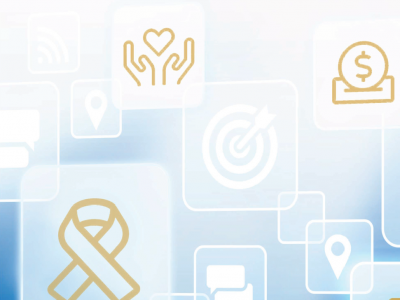Erica Spracklin is the Strategic Business Advisor, Facilities, in the Dean’s Office at the University of Saskatchewan. She graduated from Carleton University’s MPNL program.
![]() How has COVID-19 impacted the university’s work?
How has COVID-19 impacted the university’s work?
 COVID-19 has impacted every corner of the University of Saskatchewan. All classes were moved to remote delivery and the campus was closed, something that has never happened in the university’s 113-year history. Except for a few essential services (custodial, protective services, animal care and critical research related to the pandemic), all staff and faculty are now working remotely. Of course, USask isn’t alone in this, all universities across Canada, North America and the world are facing these same challenges. The pandemic has led to difficult decisions around staffing and will continue to have a serious impact on the university’s finances.
COVID-19 has impacted every corner of the University of Saskatchewan. All classes were moved to remote delivery and the campus was closed, something that has never happened in the university’s 113-year history. Except for a few essential services (custodial, protective services, animal care and critical research related to the pandemic), all staff and faculty are now working remotely. Of course, USask isn’t alone in this, all universities across Canada, North America and the world are facing these same challenges. The pandemic has led to difficult decisions around staffing and will continue to have a serious impact on the university’s finances.
In most cases, universities closed overnight. Staff were working seven days a week to manage this abrupt change while ensuring students could still finish their term and important COVID-19 research could continue. Universities across Canada are working on plans to slowly open campuses and determining how to ensure safe physical distancing while continuing to provide the labratory and clinical training necessary for students to receive their education.
The pandemic also greatly affects the large number of international students that come to Canada for their post-secondary education. With international travel unlikely to open any time soon, universities across the country that depend on those students for their enrolment numbers will be significantly impacted. Institutions are considering whether residences could make space for a two-week isolation period after students arrive from out of the country or if there are alternatives.
The effects of this pandemic will be seen in post-secondary education for a long time.
![]() What are some of the steps your organization is taking to adapt to the new environment presented by COVID-19?
What are some of the steps your organization is taking to adapt to the new environment presented by COVID-19?
USask has developed an institutional planning committee to organize the academic term. Part of this planning includes provisions for the possibility that another rapid increase in cases could occur as society begins to relax pandemic restrictions and the university may need to abruptly shut down again.
Most signs indicate that it will be quite some time, likely into 2021, before gatherings larger than 100 people are permitted. It will take some time to realize what this means for both large university classes but also crowded hallways, residence halls and communal eating spaces. All units within the university need to be working together to understand what this new environment means for students, faculty and staff.
I believe we will see a lot of people become more tech-savvy and able to connect with their co-workers using online tools. Some of these kinds of collaborative applications, like Microsoft Teams and Slack, have been around for a long time but people didn’t feel they had the time or interest in learning to use them. I believe these kinds of productivity tools will continue to help people work together even after we’re able to connect in person again.
![]() What are lessons that sector leaders should prepare to mitigate situations?
What are lessons that sector leaders should prepare to mitigate situations?
I don’t think the post-pandemic world will be the same as the pre-pandemic world. Priorities have shifted and our economy is going to be struggling for quite some time after this. I don’t believe this is the only global health scare we will see and there are likely to be some permanent changes to how society operates to better prepare us for anything like this in the future.
With the quick shift to complete online learning within universities and the likelihood of continued remote learning, institutions should be better prepared to handle this kind of situation in the future.
Our university benefitted from having set up an emergency management structure ahead of this pandemic (for previous potential disruptions). This was an incredible asset. It meant that there was a team ready to go when it became clear that this pandemic would be affecting our province. These groups have been crucial to effective decision-making and collaboration across the entire University. Being forward-thinking can be a challenge for large institutions, but we can and will learn from this monumental experience and will be better prepared for future crises.



